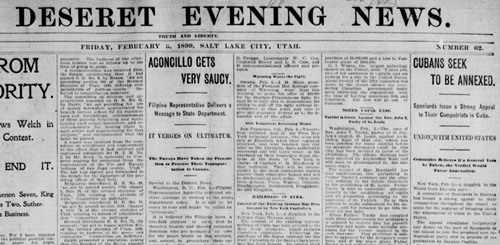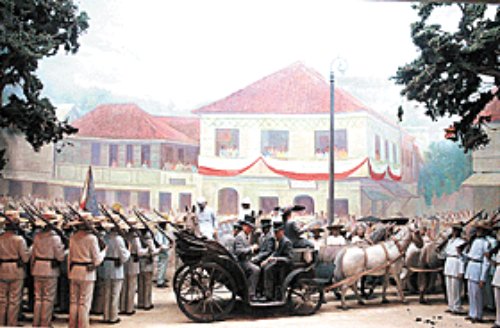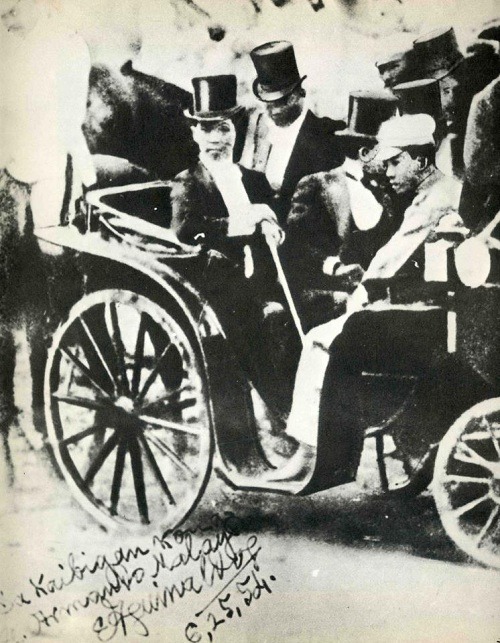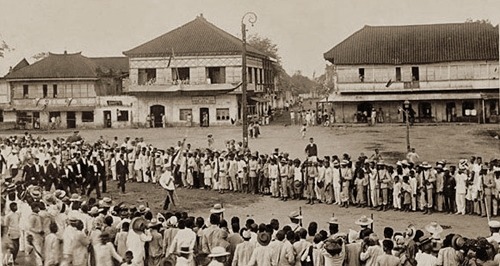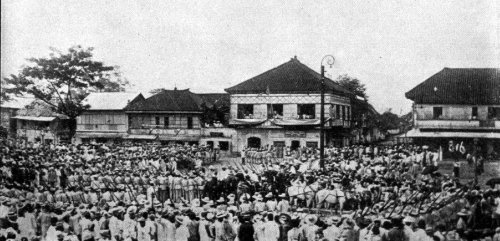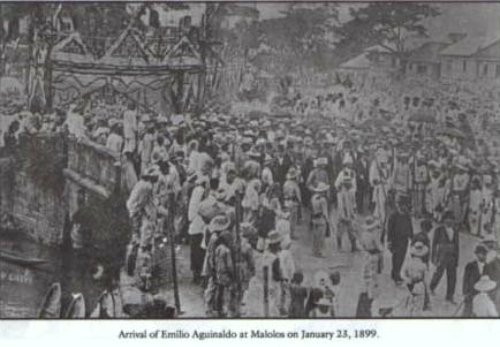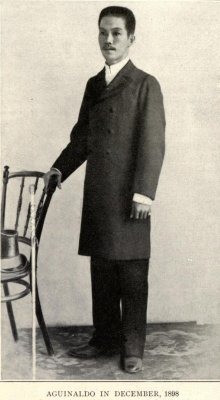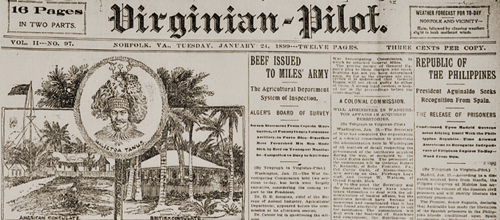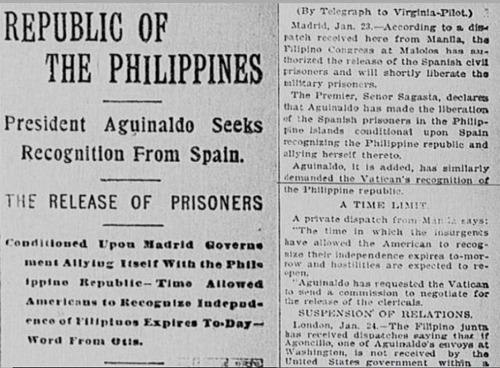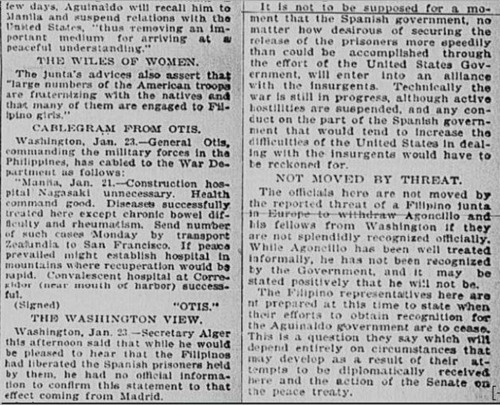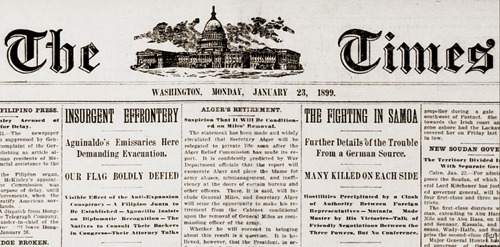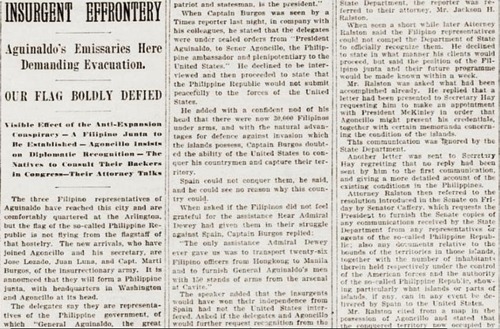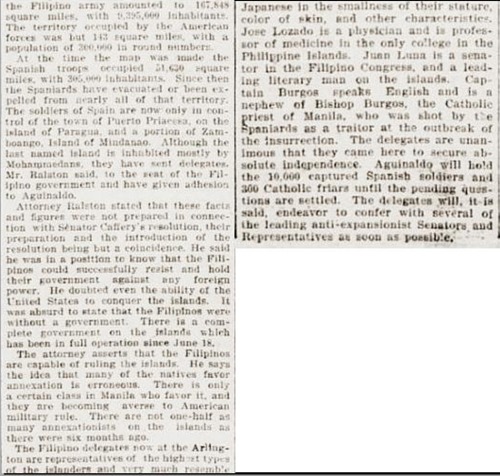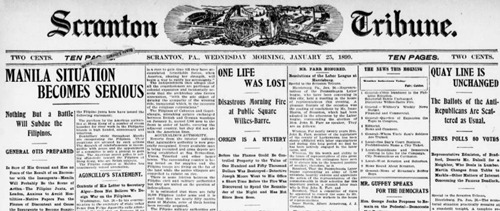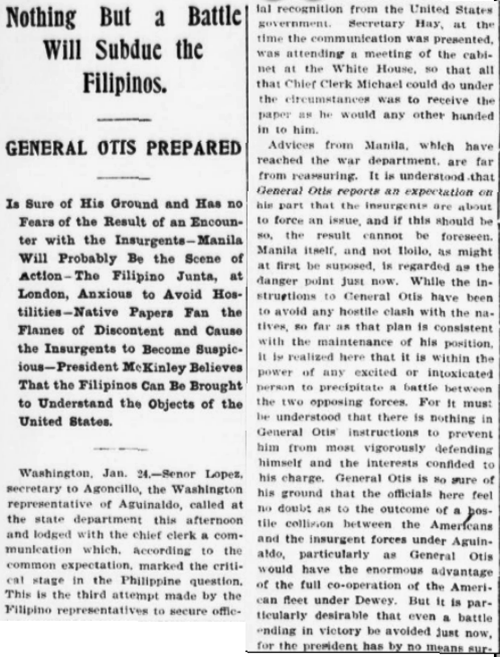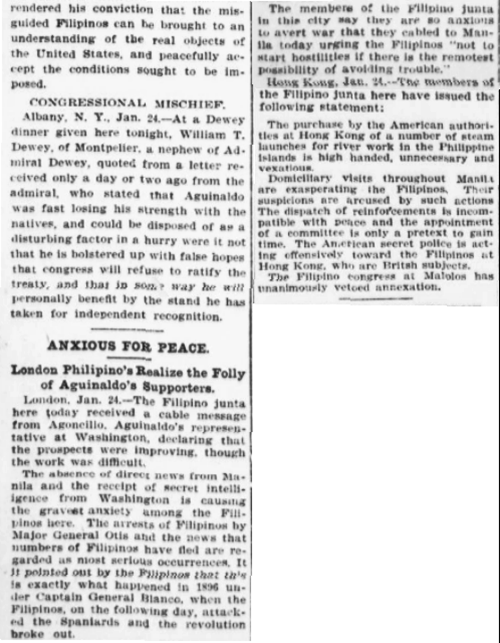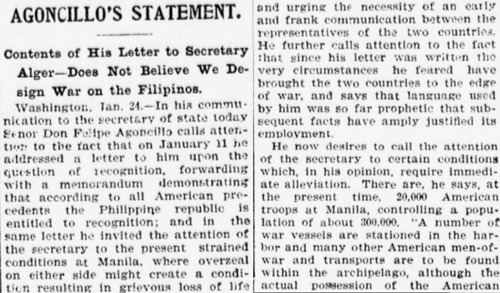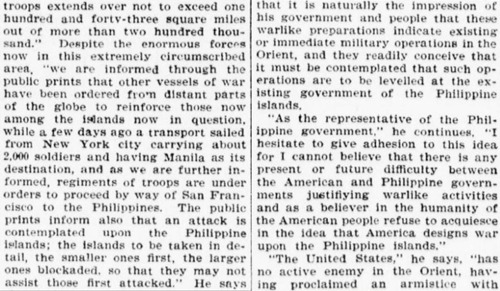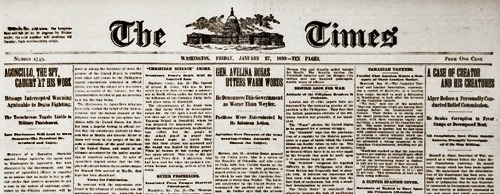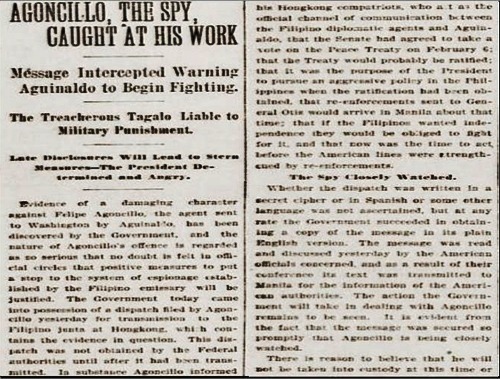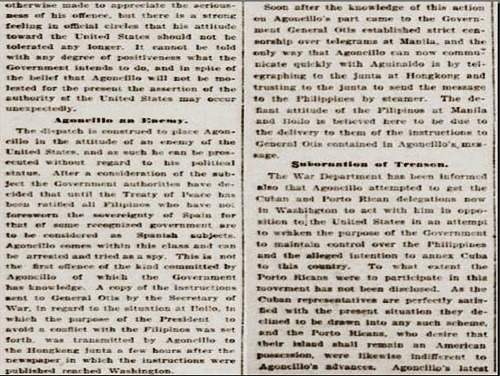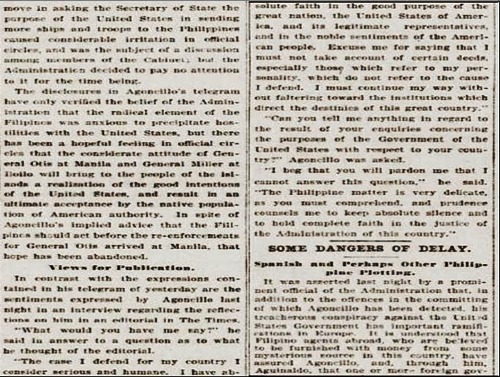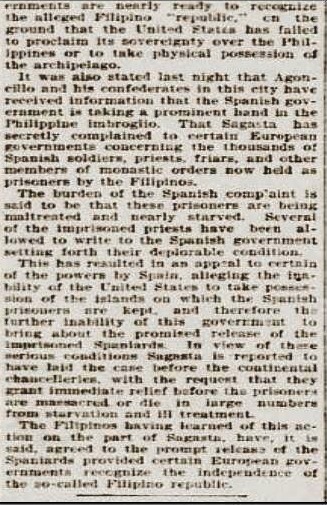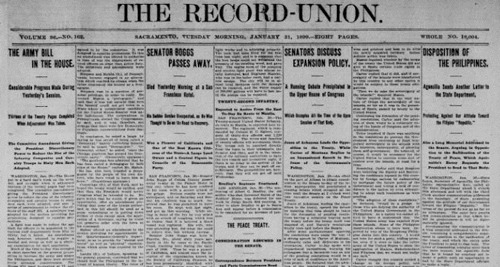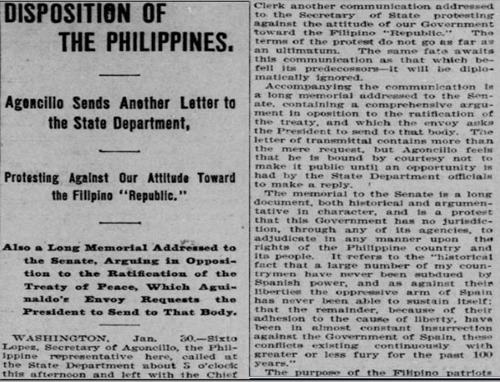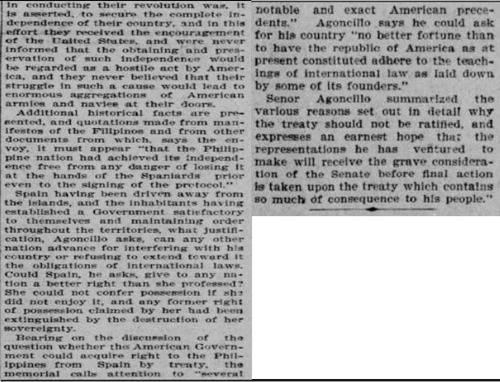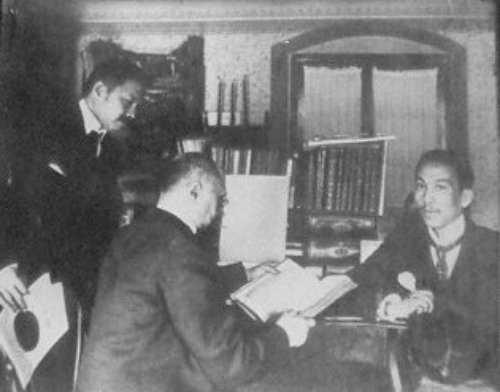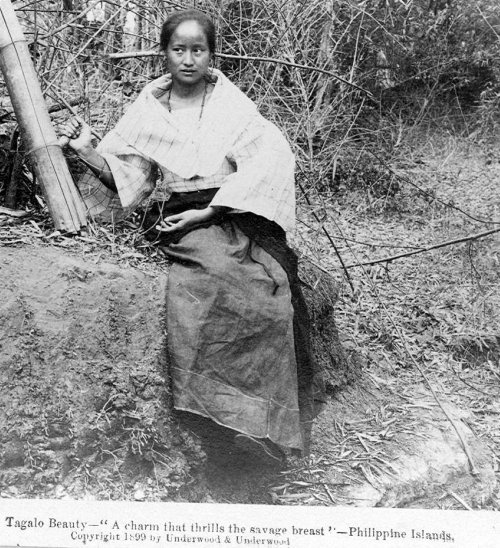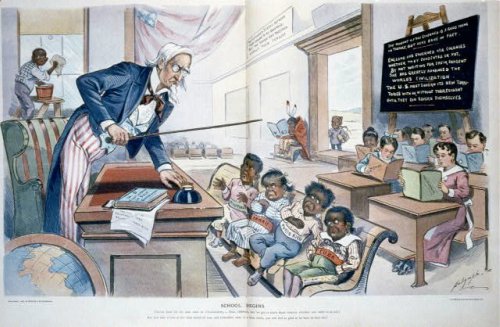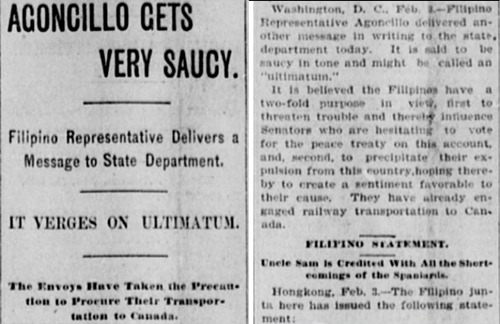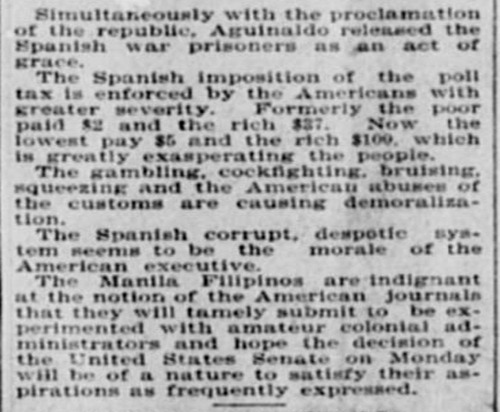Jan. 23, 1899: Inauguration of the First Philippine Republic
On Jan. 23, 1899, the First Philippine Republic, popularly known as the Malolos Republic, was inaugurated amidst colorful ceremonies at the Barasoain Church, Malolos, Bulacan Province. This was also the first republic in Asia. Aguinaldo took his oath of office as President of the Republic. He stated the aspiration of the nation “to live under the democratic regime of the Philippine Republic, free from the yoke of any foreign domination.” In conclusion, he declared: “Great is this day, glorious this date, and forever memorable this moment in which our beloved people are raised to the apotheosis of Independence.”
To make the event more memorable, Aguinaldo issued a decree granting pardon to all Spanish prisoners of war who were not members of the Spanish regular army and at the same time, granting to Spaniards and other aliens the right to engage in business within the limits of the Republic.
Aguinaldo wore a formal attire with top hat, white gloves, and bow tie and carried a tasseled gold-knobbed cane.
The food at the inaugural banquet was European and the menu written in French.
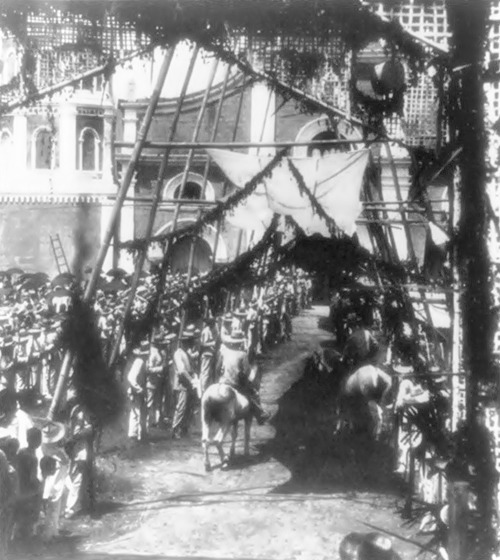
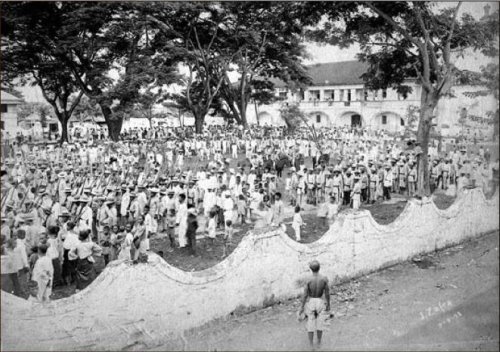
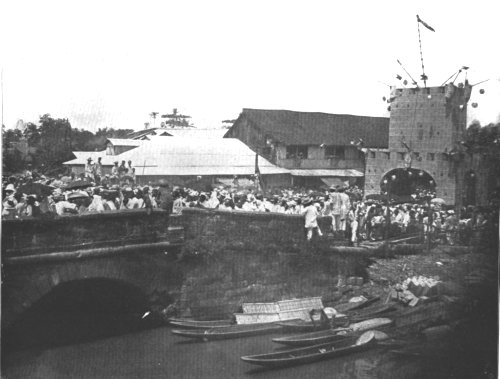
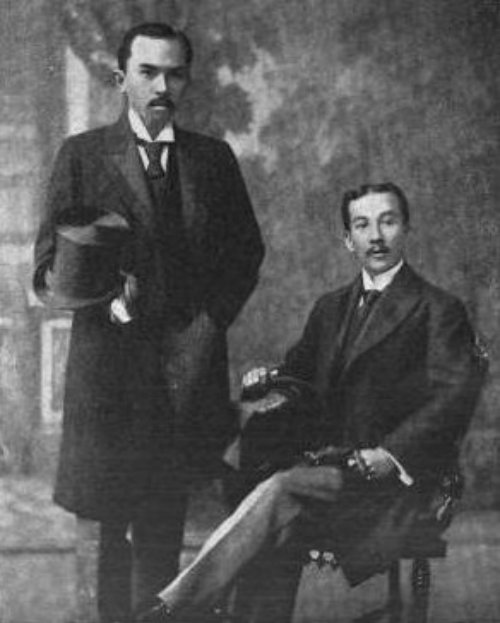
Meanwhile, in the United States, Ambassador Felipe Agoncillo appealed to the U.S. Senate where the Philippine question was being debated.
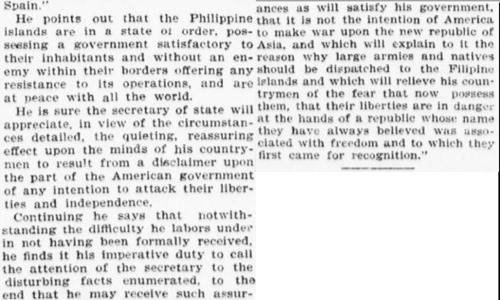
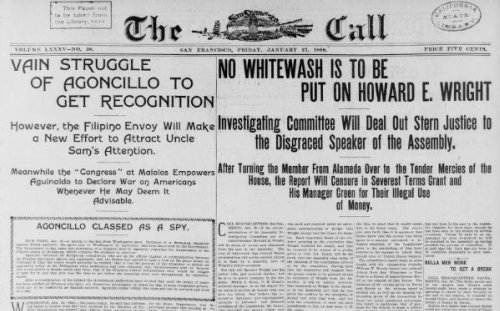
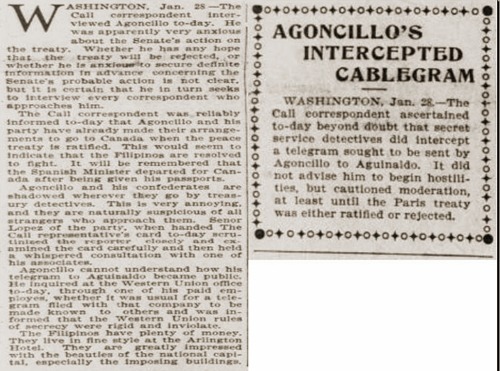
Agoncillo wrote a memorial addressed to the US Senators on January 30, reminding them to follow the precedents of their own country of recognizing the right of all nations to be free and to create and reform their own political institutions.
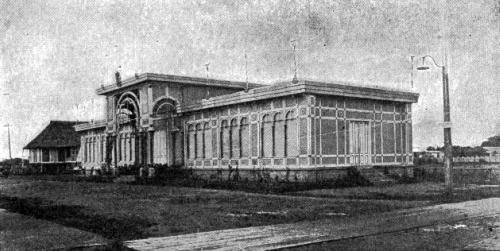
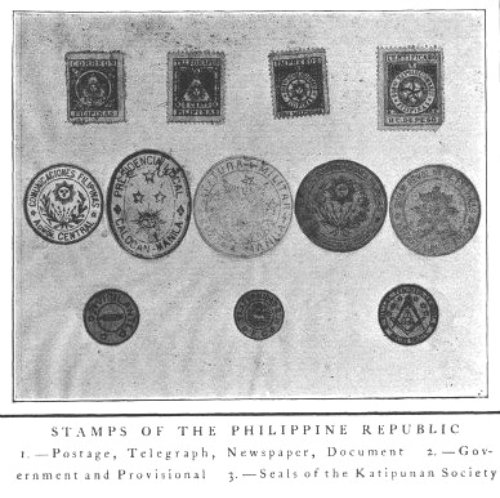
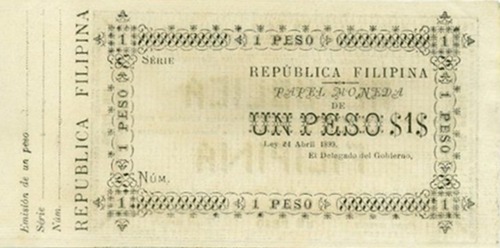
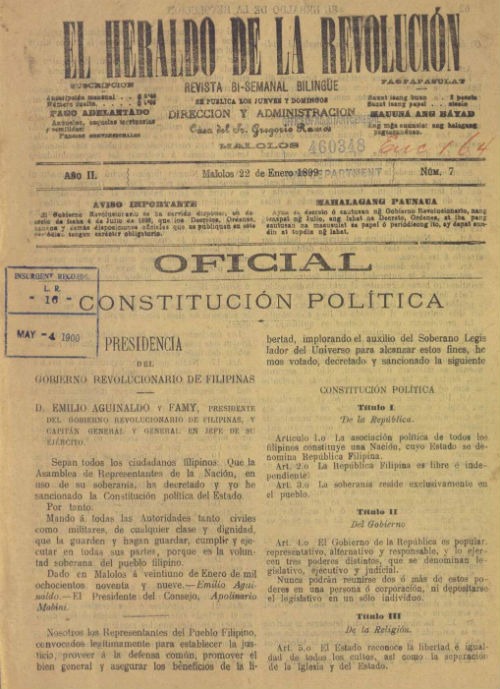
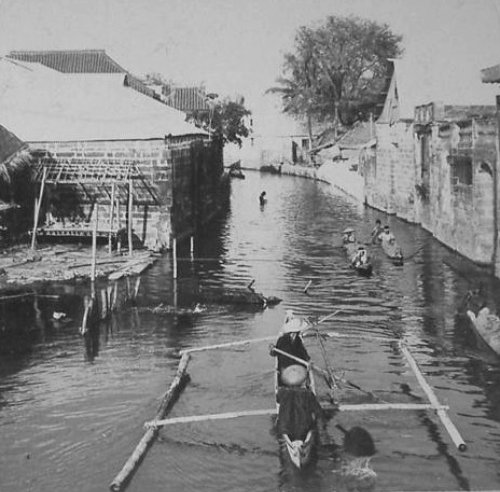
[Description from commons.wikimedia.org/
Caricature showing Uncle Sam lecturing four children labelled Philippines (who appears similar to Philippine leader Emilio Aguinaldo), Hawaii, Porto Rico and Cuba in front of children holding books labelled with various U.S. states. In the background are an American Indian holding a book upside down, a Chinese boy at door, and a black boy cleaning a window. Originally published on p. 8-9 of the January 25, 1899 issue of Puck magazine.
Caption: “School Begins. Uncle Sam (to his new class in Civilization): Now, children, you’ve got to learn these lessons whether you want to or not! But just take a look at the class ahead of you, and remember that, in a little while, you will feel as glad to be here as they are!”
Blackboard: The consent of the governed is a good thing in theory, but very rare in fact. � England has governed her colonies whether they consented or not. By not waiting for their consent she has greatly advanced the world’s civilization. � The U.S. must govern its new territories with or without their consent until they can govern themselves.
Poster: The Confederated States refused their consent to be governed, but the Union was preserved without their consent.
Book: U.S. � First Lessons in Self Government
Note: (on table) The new class � Philippines Cuba Hawaii Porto Rico]
